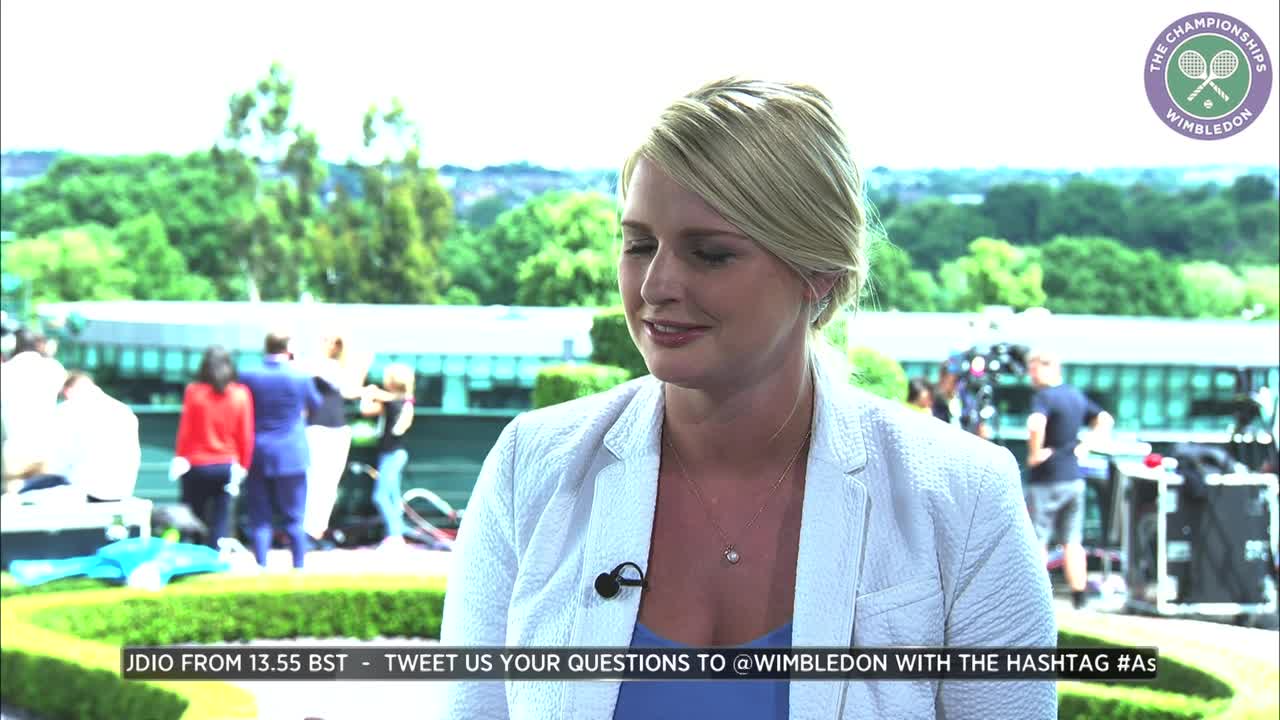With a prize money pot of just over £28 million ($38 million) at Wimbledon, it’s easy to think tennis is a lucrative sport.
The men's and ladies' singles champions will be rewarded with a cool £2m each, after all. But with an average cost of playing pro tennis estimated at around £30,000 a year (excluding coaching costs) by the International Tennis Federation, grinding it out in the lower ranks isn’t always easy.
That’s why Marcus Willis’s fairytale run has inspired so many players trying to make a living on the second-tier ITF and Challenger circuits.
“For Marcus to do what he did was one in a million,” No.248 Australian Matthew Barton said after beating France’s Albano Olivetti to win his first Grand Slam match. “It gave me a bit of inspiration for sure. He’s been grinding it out for years and years.”
Just like No.772 Willis, Barton temporarily quit to work as a tennis coach, taking a breather from life on the road playing in tournaments from Korea to India, the US and Chinese Taipei.
“There’s been lots of times where I’ve questioned my ability and questioned myself,” Barton said.

“It’s very tough. But I somehow managed to find something in me to keep pursuing and keep going.”
A survey conducted by the ITF in 2013 showed nearly half of almost 14,000 men and women playing professional tennis don’t make any prize money whatsoever. In fact, the ITF worked out you have to be ranked at least No.336 on the men’s tour and No.253 on the women’s tour to break even.
Barton’s win over Olivetti guarantees the 24-year-old from Sydney a cheque of at least £50,000 ($67,000), more than doubling his year-to-date earnings.
Barton, who squeezed it into the qualifying tournament an hour before deadline after five players ahead of him pulled out, called his victory “life changing".
“It’s massive, it’s going to set me up for the whole year and beyond,” said Barton, who faces Wimbledon marathon man John Isner in the second round.
Barton estimated he spends up to £28,000 a year playing pro tennis. He said he may spend his earnings on hiring a coach that can travel with him full-time.
Although No.793 Olivetti lost to Barton in five close sets, he leaves London with a cheque of £30,000 ($40,000), which more than triples his winnings this year.
For Olivetti, a former world No.161, who made his comeback to the Tour this year after a car accident left him 80 per cent paralysed and unable to play in 2015, the windfall is most welcome.
The 24-year-old Frenchman spends up to £25,000 a year on playing tennis. In his early years, he would reduce expenses by sharing hotel rooms with other players, but not anymore. “I’m too tall now,” laughed the six-foot-eight Frenchman. “I need a big bed.”
He struggled during his long rehab, when he said he “had nothing” and lived on a small insurance pay-out he received after the accident. Now he will spend his winnings on travelling to tournaments. The French Tennis Federation also helps him with coaching for eight per cent of his prize money.
“I wasn’t sure I could go back on the court, it was very difficult,” Olivetti said. “This money means I can breathe now, it will be easier to finish the year.”
Barton welcomed changes in recent years to prize money, with both the Grand Slam events and the entry-level ITF and ATP Challenger circuits increasing earnings and adding free hospitality.
Their bank balance may not be as healthy as some of their friends but Olivetti and Barton say they would do it again in a heartbeat.
“I prefer to try,” said Olivetti.
“Just getting that main draw win under my belt was massive,” Barton said.
Follow the latest news and scores from Wimbledon 2016 on Wimbledon.com or Apple TV, or download the official IOS or Android apps for smartphone and tablet.

